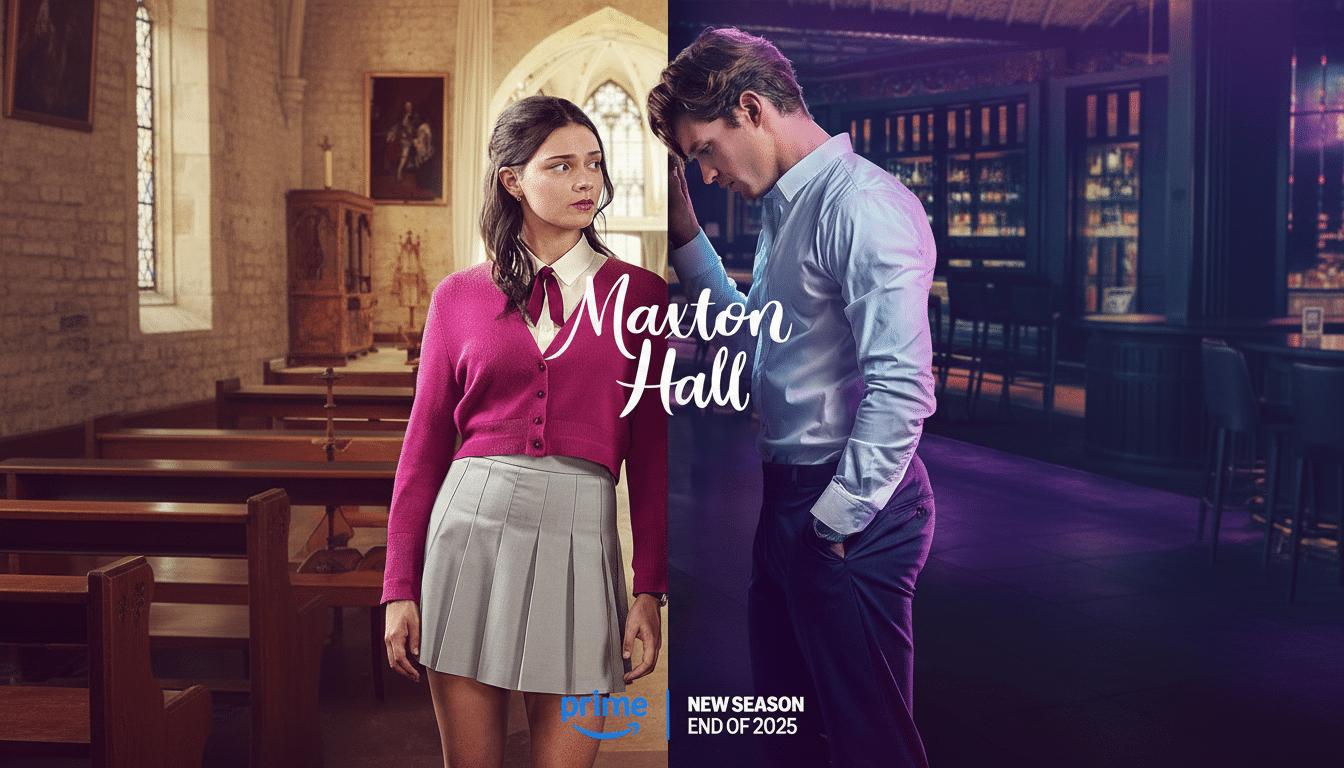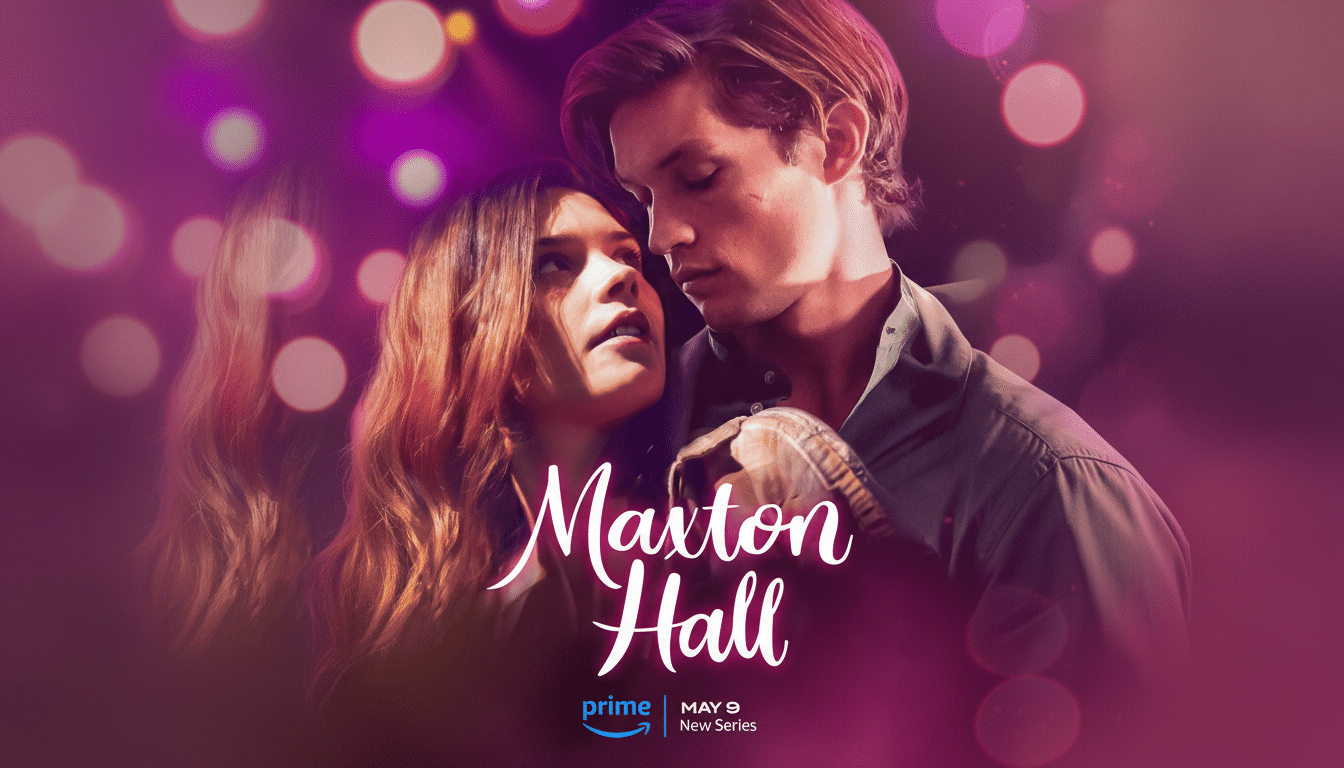Prime Video’s reign as the teen-romance queen might soon be handed off. Maxton Hall — The World Between Us, a German-language series, shot up the charts after a new round of episodes was released this past week and is No. 1 on the service among TV shows, perched at No. 2 overall (beneath a new studio movie). For those of you still reeling over the ending, unsure what to fill the void left in your life by TSITP, Maxton Hall will undoubtedly fill it.
But is Maxton Hall really the “new” The Summer I Turned Pretty, or simply another variation of teen obsession? The reason is that, like everything else about this new hit show from “Bones” producer Hart Hanson, the premise essentially succeeded by copying the older show’s emotional engine and inventing its own identity.

Prime Video Rankings Suggest A Successor
Momentum counts for a lot in streaming, and Maxton Hall has some. After the release of Season 2’s opening episodes, the series hit No. 1 on Prime Video’s TV charts, which had been previously dominated by The Summer I Turned Pretty. That movement in the leaderboard represents the most powerful real-time proxy for audience migration to something else within that platform.
Maxton Hall’s rise is also an example of the power of book-to-screen pipelines. Based on the Mona Kasten novels that are bestsellers in Germany, the series came with a built-in fan discourse to prime social chatter and repeat viewings. Companies that monitor publishing trends, like Circana BookScan, have recorded how YA adaptations predictably spark backlist bumps and online buzz in a feedback loop that The Summer I Turned Pretty expertly capitalized on over three seasons.
Release strategy helps, too. Prime Video’s incremental release schedule stretches cliffhangers over conversation cycles that last weeks, not days — the same watercooler cadence that prolonged Team Conrad versus Team Jeremiah debates. Maxton Hall is tapping into that serial rhythm, siphoning weekly conversation into chart endurance.
Common DNA and Critical Contrasts Between the Shows
Both shows are pure-hearted romantic travails shaped by coming-of-age stakes. Maxton Hall follows a scholarship girl named Ruby Bell, who clashes with heir James Beaufort at an elite boarding school and sparks an enemies-to-lovers arc in the tradition of the prickly early chemistry between Belly and Conrad in The Summer I Turned Pretty. The emotional palette is familiar — grief, ambition, class pressure, and the turbulence of first love.
Where they diverge is as revealing as where they intersect. The Summer I Turned Pretty is structurally a love triangle; Maxton Hall is a two-hander fueled not by sibling rivalry but the tension of status. That shift concentrates the drama. Ruby and James live, study, and err at close range; mistakes are instantly echoed. The show even flirts with the scandalized twists that kept TSITP discourse humming: James’ public betrayal in Season 2 is practically a Jeremiah-in-Cabo shock, but Maxton Hall keeps its fallout within its castle corridors, making the angst aphrodisiacally potent.
Character arcs hit familiar beats without feeling like they’ve been recycled. Readers who picked up on Conrad’s internal struggles will recognize James’ grappling with grief and mental health, while Ruby’s Oxford-sized dreams call to mind Belly’s developing understanding of herself beyond romance. The echo is purposeful: Both series are designed to let viewers argue, forgive, and re-argue alongside the characters.

Global Teen TV Is Having a Major Streaming Moment Now
The ascent of Maxton Hall also reflects a wider shift: non-English young-adult dramas have fewer hurdles than ever before. Global streamers have made subtitles, dubbed tracks, and hyperlocal settings for shows that play out globally a kind of norm. Consider how series such as Elite or Dark constructed international fan bases; Maxton Hall follows in that vein, but with a more subdued, romance-first hook pitched directly to BookTok sensibilities.
Industry trackers like Parrot Analytics have consistently found that romance-forward YA adaptations can overindex when driven by known IP and weekly drops.
Prime Video, for its part, has deemed teen and twenty-something viewers a strategic priority, and Maxton Hall offers the service a year-round counter to its summer-focused TSITP brand.
There’s also a programming logic: coastal nostalgia against castle-core opulence. TSITP is sun-kissed and seasonal; Maxton Hall’s gothic boarding school, designer wardrobes, and old-money politics give colder, part-autumn binge vibes. That complementary aesthetic mix helps Prime Video keep the demo throughout the calendar.
So, Is Maxton Hall the New TSITP on Prime Video?
Functionally, yes. It has taken over the same cultural slot in the same platform, topping internal charts and sparking daily conversation with characters people can’t stop debating. It scratches that itch for swoony, emotionally messy romance rooted in book fandom energy.
Creatively, it’s its own creature. Substitute the triangle for a class-clash duet, crank up the boarding-school stakes, and Maxton Hall is not a carbon copy. That distinction could be its secret weapon: familiar enough to inherit TSITP’s crowd, different enough to keep it on its toes.
The verdict for now: Maxton Hall is Prime Video’s new teen-obsession standard-bearer, genetic heir apparent rather than doppelganger. If weekly rankings and social buzz are any indication, the platform has a worthy successor — and fans, their next binge-ready romance over which to argue.

